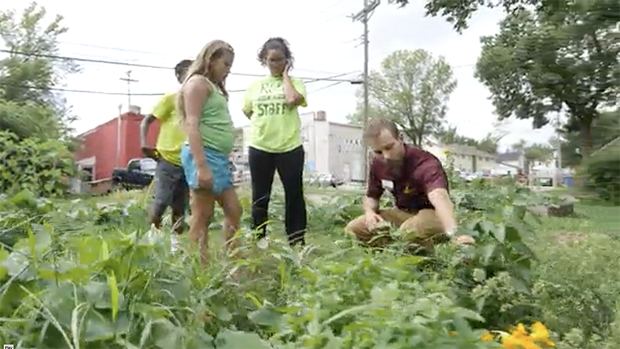
Play Video
VIDEO
Food Is Love
Learn about the education and expertise that makes Registered Dietitian Nutritionists (RDNs) the experts in nutrition and health, as well as details about Nutrition and Dietetics Technicians, Registered (NDTRs).
Registered Dietitian Nutritionists (RDNs) are food and nutrition experts with a minimum of a graduate degree from an accredited dietetics program and who completed a supervised practice requirement, passed a national exam and continue professional development throughout their careers. There also are specialty credentials in areas of gerontological nutrition (CSG), sports dietetics (CSSD), pediatric nutrition (CSP), renal nutrition (CSR) and oncology nutrition (CSO). Board-certified specialists are credentialed by the Commission on Dietetic Registration, the credentialing agency for the Academy of Nutrition and Dietetics. In addition to RDN credentialing, many states have regulatory laws for dietitians and nutrition practitioners.
RDNs work in a variety of settings:
Nutrition and dietetics technicians, registered (NDTRs) — often working in partnership with registered dietitian nutritionists — screen, evaluate and educate patients, manage and prevent diseases such as diabetes and obesity, and monitors patients' and clients' progress. NDTRs work in settings such as hospitals and clinics, extended care facilities, home health care programs, schools, prisons, restaurants, food companies, foodservice providers, public health agencies, government and community programs such as Meals on Wheels, health clubs, weight management clinics and wellness centers. NDTRs must complete a two-year college degree in an approved dietetics technician program, have supervised practice experience and pass a nationwide examination to earn the NDTR credential and must complete continuing education courses throughout their careers.
VIDEO

Play Video
VIDEO
Registered dietitian nutritionists (RDNs) and nutrition and dietetics technicians, registered (NDTRs) are credentialed practitioners.
A credential is a professional qualification — like MD for doctors or physicians — that lets the public know that the practitioner is a trained expert. In nutrition and dietetics, the credentials for trained experts is RDN and NDTR. Usually when someone says "dietitian," they mean an RDN.
"Registered dietitian nutritionist" and "nutrition and dietetics technicians, registered" are legally protected titles. Only practitioners who have completed specific educational requirements, passed a national exam and continue learning through ongoing education can use these titles and credentials.
However, there is no specific, standardized meaning for "nutritionist." Anyone can call themselves a nutritionist, and unfortunately, unqualified health care recommendations can cause people harm. So whether someone calls themselves "dietitian" or "nutritionist," check for credentials to ensure they are qualified nutrition experts.
Looking for credible nutrition information and recommendations? The Academy of Nutrition and Dietetics' network of credentialed food and nutrition practitioners are ready to help!